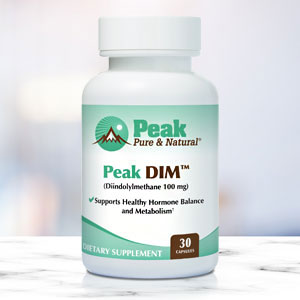Get Easy Health Digest™ in your inbox and don’t miss a thing when you subscribe today. Plus, get the free bonus report, Mother Nature’s Tips, Tricks and Remedies for Cholesterol, Blood Pressure & Blood Sugar as my way of saying welcome to the community!
The oral health-mental health connection for happy aging

It’s incredible to me how two seemingly unrelated bodily functions can, in fact, have a strong influence on each other.
Take, for example, the connection between gum disease and conditions such as cancer, diabetes, and kidney disease.
Many of us think of oral health as a separate entity from the rest of the body, because that’s exactly what the medical community has done. But this simply isn’t the case.
Your mouth is the gateway to the rest of your body. Keeping it clean prevents bacteria from fermenting and circulating throughout your body, triggering inflammation and disease.
And as if this weren’t enough, we’re finding that oral health and mental health are linked as well.
For people over 65, keeping your mouth healthy could lower your risk of experiencing depression and anxiety in your “golden years.”
A healthy mouth = lower odds of depression and anxiety
A study of elderly adults in China found that people with better oral health were less likely to suffer from depression and anxiety.
They explored data from 3,188 people aged 65 and older who participated in the Chinese Longitudinal Healthy Longevity Survey, a long-term project that tracks the health and well-being of senior adults.
Here are some of their interesting findings:
- People who brushed their teeth two or more times a day had a 22% lower chance of experiencing anxiety compared with those who brushed infrequently.
- People who ate fruits and vegetables daily were significantly less likely to develop anxiety.
- People who had undergone dental procedures to repair missing teeth had a 42% lower chance of experiencing depression.
- People who brushed their teeth regularly and ate fruits and vegetables daily were also less likely to suffer from dementia.
The study authors concluded that “oral health and dietary behavior are closely related to the susceptibility of middle-aged and elderly individuals to depression, anxiety, and dementia.”
But they are also quick to note that it cannot be assumed that poor oral hygiene causes depression or anxiety. In fact, the opposite relationship may exist, i.e., depression and anxiety may reduce a person’s ability to maintain good oral hygiene.
Tips for added oral health benefits
Regardless of which causes which, we know that good oral hygiene is essential.
In case you’re not yet convinced that bad oral hygiene can be dangerous to your health, consider this:
- Skipping your brush-and-floss routine for just 24 hours can kick off periodontitis — severe gum disease that can lead to tooth damage or even tooth loss
- Klebsiella pneumoniae, a bacterium commonly found in the human mouth but rarely in the gut, can cause bowel disease and ulcerative colitis.
- Clinical trials have found that hospital patients who brushed their teeth twice daily had lower rates of hospital-acquired pneumonia (HAP).
But what else can a person do besides brush and floss?
Plenty. And as with many things, it starts with nutrition:
- Bleeding gums may signal a vitamin C deficiency. Make sure you’re including citrus fruits, berries and cruciferous vegetables in your diet.
- DIM (diindolylmethane) supplements can help maintain a healthy oral microbiome (DIM is found in broccoli, but you’d have to eat TONS of it to have any effect on your oral health).
- Other supplements are also effective in preventing gum disease, including grape seed extract and echinacea.
The moral of this story: Take good care of your mouth and you’ll set yourself up for a longer, healthier and happier life.
Editor’s note: Do you know that poor gums and teeth are linked to the number one killer in America? Not to mention kidney disease… rheumatoid arthritis… Parkinson’s disease… depression… and so much more. Click here to discover America’s Hidden Dental Health Crisis: How to protect yourself and your family from this dangerous public health peril!
Sources:
Better oral health linked to lower risk of depression and anxiety in older adults — PsyPost
Modelling analysis of dietary behaviors and oral health status to assess the impact on the mental well-being of elderly individuals: a cross-sectional survey study — Frontiers in Nutrition














